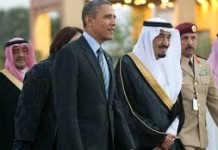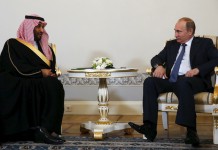Context
 Faced with a challenging prospect in AfPak region, the US has initiated an intricate dialog process with the three key parties, which are distrustful of each other and the US. The US-Pakistan talks were held in March, followed by US-Afghanistan dialogue in May, and now this week comes the US-India strategic discussion.
Faced with a challenging prospect in AfPak region, the US has initiated an intricate dialog process with the three key parties, which are distrustful of each other and the US. The US-Pakistan talks were held in March, followed by US-Afghanistan dialogue in May, and now this week comes the US-India strategic discussion.
To balance the competing vision of three countries with a history of mistrust is a daunting task to say the least. All three countries have at one point or the other felt short-changed at the hands of the US and by each other. PoliTact will be examining the strategic dialogue US is carrying out with Pakistan, Afghanistan and India in a series of articles, juxtaposing various positions and pointing to the intricacies involved.
Analysis
.jpg) The US and India talks begin this week and the focus most undoubtedly will be on the AfPak situation. India had protested strongly to its inclusion in the Af-Pak group initially, and ever since India has positioned itself as part of the solution not the problem. It is also important to note that two heavy-duty actors of the US AfPak policy, Robert Gates and Holbrooke, are going to be conspicuously missing from the dialogue due to ‘other engagements’.
The US and India talks begin this week and the focus most undoubtedly will be on the AfPak situation. India had protested strongly to its inclusion in the Af-Pak group initially, and ever since India has positioned itself as part of the solution not the problem. It is also important to note that two heavy-duty actors of the US AfPak policy, Robert Gates and Holbrooke, are going to be conspicuously missing from the dialogue due to ‘other engagements’.
The absence of Holbrooke eases India’s anxieties regarding giving any impression that there is anything afoot regarding the solution to Kashmir, which is a key Pakistani demand. At the same time, the Defense Department being represented by a delegate other than Secretary Gates must be comforting for the Pakistan generals. During US-Pakistan strategic talks it was General Kiyani who got the highest level of attention at the Defense Department and otherwise. US did not want to hurt its special relationship with the Pakistan Army at this pivotal time of the Afghan war. A high level meeting between the national security establishments of Pakistan and US is taking place in Islamabad next week.
- Afghanistan-Pakistan situation.
- Reconstruction efforts in Afghanistan.
- India’s Role in Afghanistan and in training of its Army and Security personal.
- Counter-terrorism collaboration between the US and India particularly focused on threats from Pakistani Taliban and Punjabi and Kashmiri groups operating from Pakistan.
- Convincing US to not supply Pakistan with advanced weaponry, as it will be used against it.
- India’s help related to Iran’s nuclear ambitions and nuclear safety.
- The role of China vis-a-vis India.
- Garnering support for India’s position in the UN Security Council.
- Expand trade between US and India.
- Expand defense and technology ventures.
India is concerned that the US and Pakistan might have struck a secret deal on the supply of nuclear technology to Pakistan during the strategic dialogue between the two countries. Former Indian Foreign Secretary Lalit Mansingh has warned the government to remain watchful despite America’s clear assertion that it has no intention of signing a nuclear deal with Pakistan in the near future. India is also skeptical that a greater role for Pakistan in Afghanistan would undermine India’s strategic interests in that country. The country had felt disillusioned after the US-Pakistan strategic dialogue and has been getting closer to Russia, its cold war ally. Furthermore, India is also concerned about the statement made by President Obama during his visit to China, which reinforced the G-2 vision of the world, and seems to entrust China with keeping order in the region.
PoliTact has previously examined theUS-Pakistan strategic dialogue in a three part series, the premise of which was getting Pakistan’s support in resolving the Afghan Conflict. The assessment lead to the conclusion that US partnership with Pakistan has a more regional context. On the contrary, the above listed agenda items reveal US-India relationship has a more global dimension, and is backed by growing economy of India. As part of BRIC, India is increasingly positioning itself for global power status. In addition to US-India talks, PoliTact will next examine the US-Afghan strategic talks and the process of reconciliation initiated by President Karzai of Afghanistan.
Tell Us What You Think



